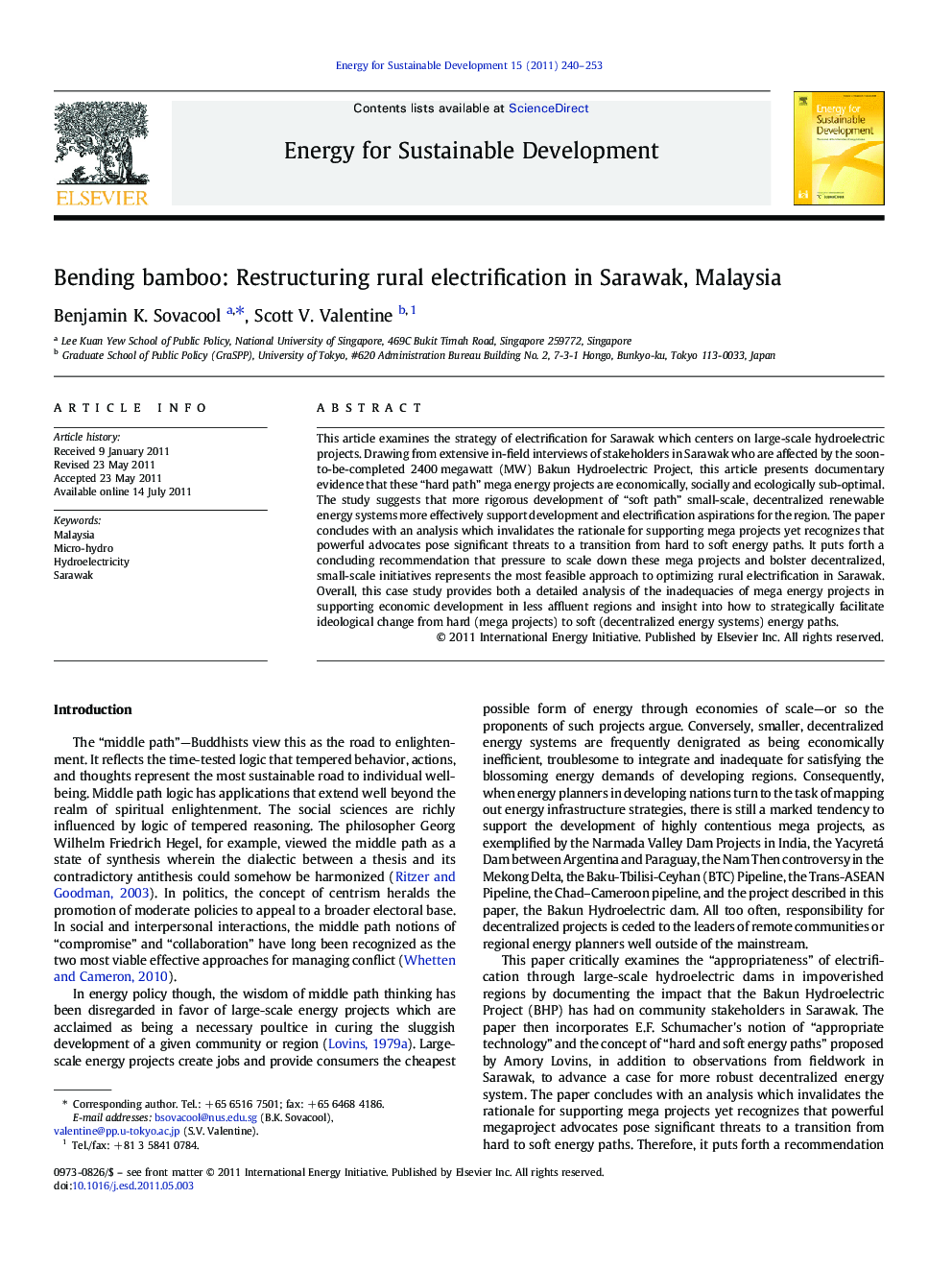| Article ID | Journal | Published Year | Pages | File Type |
|---|---|---|---|---|
| 1047000 | Energy for Sustainable Development | 2011 | 14 Pages |
This article examines the strategy of electrification for Sarawak which centers on large-scale hydroelectric projects. Drawing from extensive in-field interviews of stakeholders in Sarawak who are affected by the soon-to-be-completed 2400 megawatt (MW) Bakun Hydroelectric Project, this article presents documentary evidence that these “hard path” mega energy projects are economically, socially and ecologically sub-optimal. The study suggests that more rigorous development of “soft path” small-scale, decentralized renewable energy systems more effectively support development and electrification aspirations for the region. The paper concludes with an analysis which invalidates the rationale for supporting mega projects yet recognizes that powerful advocates pose significant threats to a transition from hard to soft energy paths. It puts forth a concluding recommendation that pressure to scale down these mega projects and bolster decentralized, small-scale initiatives represents the most feasible approach to optimizing rural electrification in Sarawak. Overall, this case study provides both a detailed analysis of the inadequacies of mega energy projects in supporting economic development in less affluent regions and insight into how to strategically facilitate ideological change from hard (mega projects) to soft (decentralized energy systems) energy paths.
► Hard path energy projects in Malaysia are economically, socially and ecologically sub-optimal. ► The 2400 MW Bakun Hydroelectric Project in Sarawak is one example of a hard path project. ► Small-scale initiatives in Malaysia represent the most feasible approach to rural electrification.
